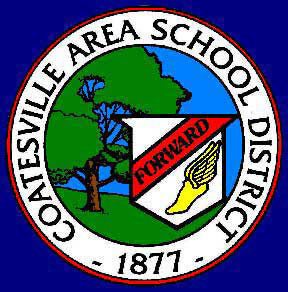Audit report hits school board for poor oversight, questions retirement benefits for Lupold
By Mike McGann, Editor, The Times
 An audit report by the state Auditor General’s Office shows that the Coatesville Area School District violated state law by spending beyond its revenue — and that it had an operational deficit of $4.9 million in 2012, the most recent fiscal year audited — and improperly paid retirement benefits to a former administrator.
An audit report by the state Auditor General’s Office shows that the Coatesville Area School District violated state law by spending beyond its revenue — and that it had an operational deficit of $4.9 million in 2012, the most recent fiscal year audited — and improperly paid retirement benefits to a former administrator.
The report was issued to the district March 7, by the office of Auditor General Eugene DePasquale, and suggested that the district is in dire financial straits and needed to cut spending and better estimate revenues, immediately.
Additionally, it said that it improperly paid retirement benefits for former Business Administrator Kenneth Lupold and failed to publicly discuss or disclose its decisions to do so.
The report is stark in criticizing the district and the Board of Education for failing to provide proper fiscal oversight to the district’s finances, noting it had violated the law by failing to have a balanced budget at the end of the fiscal year in 2012.
The district did not respond to the state on the matter of deficits, the report said. District officials could not be reached for comment, Monday afternoon.
“The district’s poor financial condition is due primarily to its inability to control spending within the confines of its budget, which also violates Section 609 of the PSC (Pennsylvania School Code),” the report said.
The code says specifically:
“No work shall be hired to be done, no materials purchased and no contracts made by any board of the school directors which will cause the sums appropriated to specific purposes in the budget to be exceeded.”
The audit suggests that the district’s budgets have been developed with poor assumptions of likely revenue — overstating likely income — and then failing to cut spending when revenue assumptions don’t pan out.
And, as the report highlights, the fiscal issues with the district have been a long-running issue, as the audit revealed a $31.1 million drop in the district’s general fund balance over a seven-year period, suggesting dire times ahead with drastic changes in the district’s financial management.
“The severity of the district’s financial conditions will require it to work to find substantial opportunities to reduce its expenditures,” the report said. In doing so, the district should develop more realistic budgets and then adhere to them, so that its actual expenditures do not exceed its budgeted expenditures. In addition, the district must create a feasible plan for systematically reducing its deficit and establish a timeline for then the district will return to a positive balance.”
The report also noted that one of the district’s biggest concerns is rapid increase of the cost of charter school tuition — that too many district parents were choosing to send their children to charter schools rather than district schools, indicating problems with the district.
On Lupold’s retirement benefits, the report said: “Our audit of the Coatesville Area School District found that its Board of School Directors decided to pay the district’s former Director of Business Administration for retirement benefits he was ineligible to receive and did not adequately inform the public about the basis for this decision.”
Lupold, who had served on an interim basis as an employee of an outside staffing firm, was only a district employee for two years and three months. The audit suggested that Lupold was ineligible for $21,873 of retirement incentives because he had not been a district employee for 10 years, as the Act 93 agreement (the general negotiated employment agreement for district administrators) required.
DiPasquale’s office said it requested an explanation from board president Neil Campbell, who, the report said in a letter, that the board had decided to waive the eligibility requirements. But, according to the report, only the early retirement provisions could be waived — there’s no waiver option listed in the district’s Act 93 agreements. Furthermore, upon analyzing the meeting minutes, the report said the board never discussed the payment in public session.
“Given the district’s financial position, the district’s payment to its former director was not in the best interest of taxpayers,” the report said. “Moreover, the board should have publicly explained why the board permitted the unnecessary payment to the former director.”
The district did respond to the report’s comments — to the state — saying the move to push Lupold, who was making $200,000 annually — was a coast-saving measure. The reply said that the board moved to negotiate an early retirement deal with Lupold to save money and chose not to discuss the details in public to “spare the employee excessive public embarrassment.” The district acknowledged a failure, in this case, to properly discuss the settlement in public.
The reply suggested a potential savings of some $600,000 — Lupold had nearly three years left on his contract — but the board ultimately hired Ronald Kabonick in Sept., 2013, at a salary of $165,000, muting some of those projected savings.





